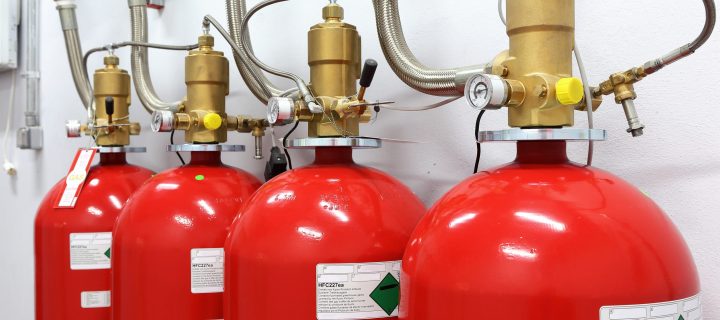Many commercial kitchens and restaurants don’t reopen after a fire, or they face severe delays and downtime. Worse still is the potential loss of life if they do not deal with a fire swiftly enough. Can your business afford this?
Why Are Suppression Systems Important for Commercial Kitchens?
Suppression systems are handy to have in a variety of commercial settings, but none more so than in commercial kitchens.
This month, to help highlight the fire risks faced by commercial kitchens, we’ll look at what the risks are, how suppression systems work to combat this and any business that may be overlooking the importance of such a system.
Fire risks in commercial kitchens
According to government data, there were 889 fires in food and drink premises in 2020/21. But that figure doesn’t even account for the kitchens in hotels, holiday sites, hospitals, schools, entertainment and leisure facilities, and any other non-domestic buildings that have a commercial kitchen.
Due to the very nature of what goes on in these kitchens day to day, the risk of a fire breaking out is high. This is especially true if appliances, extractors and other ventilation equipment aren’t kept in top condition with regular maintenance.
One of the biggest risks is the overheating of what is being cooked, with high temperatures igniting fires, particularly when cooking with oils and fats. For this reason, the separation of units within a kitchen should exist so that fire cannot easily spread across appliances.
How do kitchen suppression systems work?
There are a variety of fire suppression systems available, but we’re going to take a look at the one we have specific experience with: the Ansul R-102, a specific restaurant fire suppression system.
Similar to how you typically think of suppression and sprinkler systems, the pipework and valves on the R-102 are laid out to deliver a suppressant to the right area. For commercial kitchens, the nozzles are directed either at specific appliances and surfaces or are spaced out at regular intervals over the cooking areas.
There is a manual pull station to trigger the system, but there are fusible links within the system to trigger automatically when a maximum temperature is exceeded, indicating a fire has gotten out of control. Once triggered, the system delivers a wet chemical from a cylinder that is then sprayed from the nozzles onto the hazards below. The oxygen is then displaced to extinguish the fire, and it also creates a foam blanket to cool the area down, preventing any re-flash.
Is a kitchen suppression system a legal requirement?
While not technically a legal requirement, a suppression system goes a long way to meeting your legal obligation as set out in the Regulatory Reform (Fire Safety) Order 2005. The ‘principles of prevention’ in part 3 of Schedule 1 list a variety of things you should be doing as a business or commercial operation to prevent fire – something these systems can show.
In addition, many insurance companies will not cover you if you have a commercial kitchen without a suppression system in place. This is because of the high risk involved, but with a suppression system, there is likely to be less damage, fewer casualties and a lower risk of a business needing to close.
Hidden dangers for smaller businesses
Large commercial kitchens often have fire safety and suppression factored into their design, but even small businesses with kitchen facilities should consider suppression systems.
Small takeaway restaurants, chip shops and kebab houses are susceptible to risk just as much as a large operation. If anything, the risk is greater, as the business is less likely to recover from the cost of the damage and closure in the same way a chain or multi-national operation could.
Here at TVF (UK) Limited, we provide suppression systems for commercial kitchens of any size, as well as for data centres where water sprinklers are not appropriate. Our experience as fire safety experts means you can better protect your business, staff and guests from the hazard of a fire.
Wherever you’re based in High Wycombe, Watford, Slough and the surrounding areas, call our team today and we’ll be happy to discuss your commercial kitchen fire safety requirements – whether that’s fire risk assessments or suppression systems.













